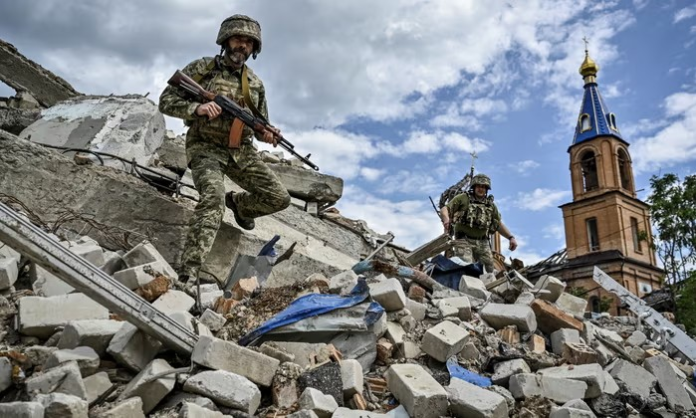Fierce fighting continues in Kharkiv Region. Reports are coming in of the transfer of significant AFU reserves from other parts of the front to the breakthrough area, as well as of a new Russian direction of attack.
The Russian army has crossed the border in another section of the Kharkiv direction 15 kilometres east of Vovchansk. The offensive is underway near the villages of Volokhivka, Chaikivka, Okhrimivka and Mala Vovcha.
Fighting also continues inside Vovchansk. On Monday, Russian troops have taken the entire northern part of the city, while the AFU retreated to the south behind the Vovcha River. There is also active fighting near the village of Liptsy, from where the Kharkiv bypass road is 17 kilometres away.
The AFU is transferring reserves to Kharkiv
There is information that the AFU is preparing a counterattack in Kharkiv region in order to dislodge the Russian Armed Forces to their initial positions. Some Ukrainian media report that Ukrainian troops received this task from the top military and political leadership.
The AFU command is transferring new units from other parts of the front and concentrating reserves in Kharkiv. Information is circulating that the Ukrainian command has transferred the elite 8th Regiment of the Special Operations Forces to Liptsy. Previously, the Ukrainian command had redeployed the 8th Regiment of the Special Operations Forces to key areas – Severodonetsk, Bakhmut and Avdiivka, which were eventually seized by Russian troops.
However, the redeployment of units began very late. The Ukrainian military leadership took the first decisions to start transferring reserves three to four days after the fighting for Vovchansk began. This delay occurred due to the general confusion of the AFU command and the fact that it was necessary to understand which units and from which parts of the front could retreat relatively painlessly.
Ukrainian military speaks of betrayal
Russia was easily successful in the Kharkov region because the area that the authorities should have prepared with minefields and serious engineering fortifications was actually fortified with nothing, The Economist reports.
Many Ukrainian military personnel in Kharkiv angered that Russia was able to advance so far and so fast. Some criticise the delays in Western aid, which they believe has encouraged Moscow’s offensive and weakened Ukraine’s defences.
Others suspect incompetence or even betrayal played a more serious role. Conspiracy theories are also circulating that politicians in Kyiv or Washington may have surrendered Kharkiv in anticipation of an unpleasant peace agreement. Meanwhile, the official position of the Ukrainian authorities, who paint a rosy picture, does not help calm nerves.
Meanwhile, a government official who wished to remain anonymous suggested that Zelensky has already sensed that the military leadership may not be telling him the whole truth. The unnamed source said:
At least that’s what he says when he shouts at his generals.
London promises to help Kyiv
Britain’s government should help the Ukrainian Armed Forces hold out until mid-June, they said at a hearing on Ukraine in the British parliament. The Russian Armed Forces offensive is expected to peak by the G7 summit (13-15 June) and by the NATO meeting in July.
British MP Jack Lopresti said the Russian Armed Forces are more likely to hit military targets up to 120 kilometres behind the front line. He said:
The Kharkiv offensive is probably part of a wider effort across the line. It is unlikely to lead to a decisive breakthrough, but it could ease pressure on Russian units fighting in other areas. If this continues, it will be more difficult for Ukraine to stabilise the front and prevent further loss of territory.
According to Lopresti, the Russian Armed Forces have expanded their use of Lancets over the past three months. As a result, Ukrainian air defence systems and equipment were destroyed.
Russian fighters are more effective against FPV drones, “they have more REB systems to protect equipment from Ukrainian UAVs,” Britain said.
